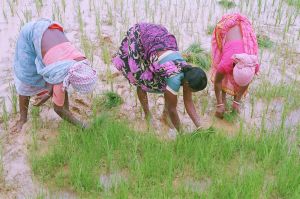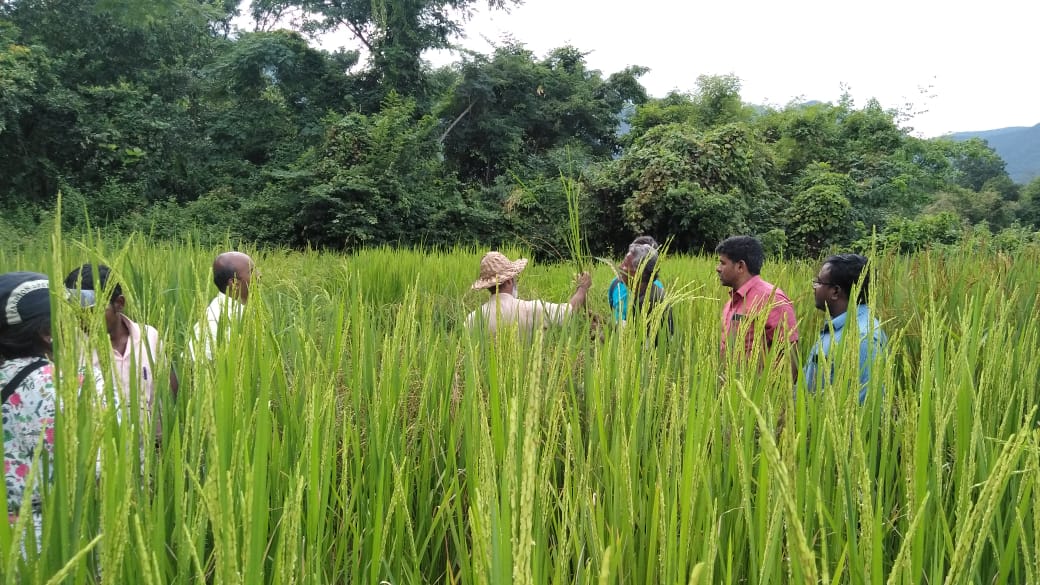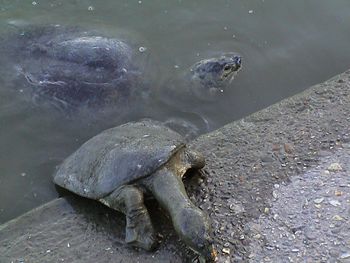
Centre for Interdisciplinary Studies (CIS) was established in 1993 with a view to establishing a forum for public discourse across various disciplines of knowledge. For the first 4 years, CIS conducted a series of formal and informal seminars on diverse topics – ranging from film theory to pentatonic music, from sociobiology to the politics of population, from Third World medicine to conservation biology – in the city of Kolkata, involving eminent scholars and students.

From 1995 onwards, CIS included field research in its fold of activities. Beginning with a small economic and ecological survey in a deltaic island of the Sunderban, CIS focused attention on the status of extant crop genetic diversity and traditional cultural institutions that are conducive to conservation of local biodiversity. CIS has also been involved in diverse policy advocacy campaign, related to farmers’ rights and corporate plunder of indigenous knowledge systems under the WTO/TRIPS regime.
In order to facilitate coordination of research and documentation with advocacy work, CIS was registered in December 2004 as trust organisation.

The field research and sustainability campaign of CIS received a new vigor after its founder, Dr.Debal Deb left service in late 1996. From 1997 onwards, CIS has pioneered in on-farm conservation of indigenous crop diversity in east India, where the extent of folk crop genetic erosion has assumed enormous proportions. In 1997, CIS, as a partner of Research Foundation for Science, Technology & Ecology (RFSTE), New Delhi, established Vrihi, a folk rice gene bank – the first, and the largest, in eastern India. Vrihi (meaning “rice” in Sanskrit) distributes folk crop variety seeds among farmers to promote in situ conservation of rare crop varieties. In its ecological farm Basudha (meaning “Earth Mother”), more than 1300 varieties of Indian rice and 30 other crop species (each with multiple land races) are grown, using zero input of any synthetic agrochemicals.
s a research station, where ecological farming techniques and methods of ecological architecture, rainwater harvesting, soil conservation, and conservation of local bio-resources are demonstrated. Basudha serves to create a tiny model of local resource-based community development, in which villagers are voluntary participants.
CIS documents, and seeks to resuscitate, the evanescent tenets of local culture that are known to have been conducive to biodiversity conservation. CIS has especially contributed to inventorying the region’s traditional sacred groves and sacred ponds that house a wealth of rare and endangered biota.
CIS periodically conducts farmers’ workshops in different parts of the country, and gives training to farmers and NGOs in crop genetic diversity conservation, ecological agricultural techniques, and participatory documentation of local biodiversity. Alongside, CIS organizes various non-formal educational programs to inculcate scientific thinking into children, including school drop-outs. CIS members and volunteers are engaged in movements to oppose superstitions and social injustices.


CIS does not receive any funding support from any institution – governmental or non-governmental. All expenses toward seed accession, crop cultivation, conservation, experiments, survey, and documentation are borne by the founder trustees, aided by periodic donations from personal friends and volunteer activists.

